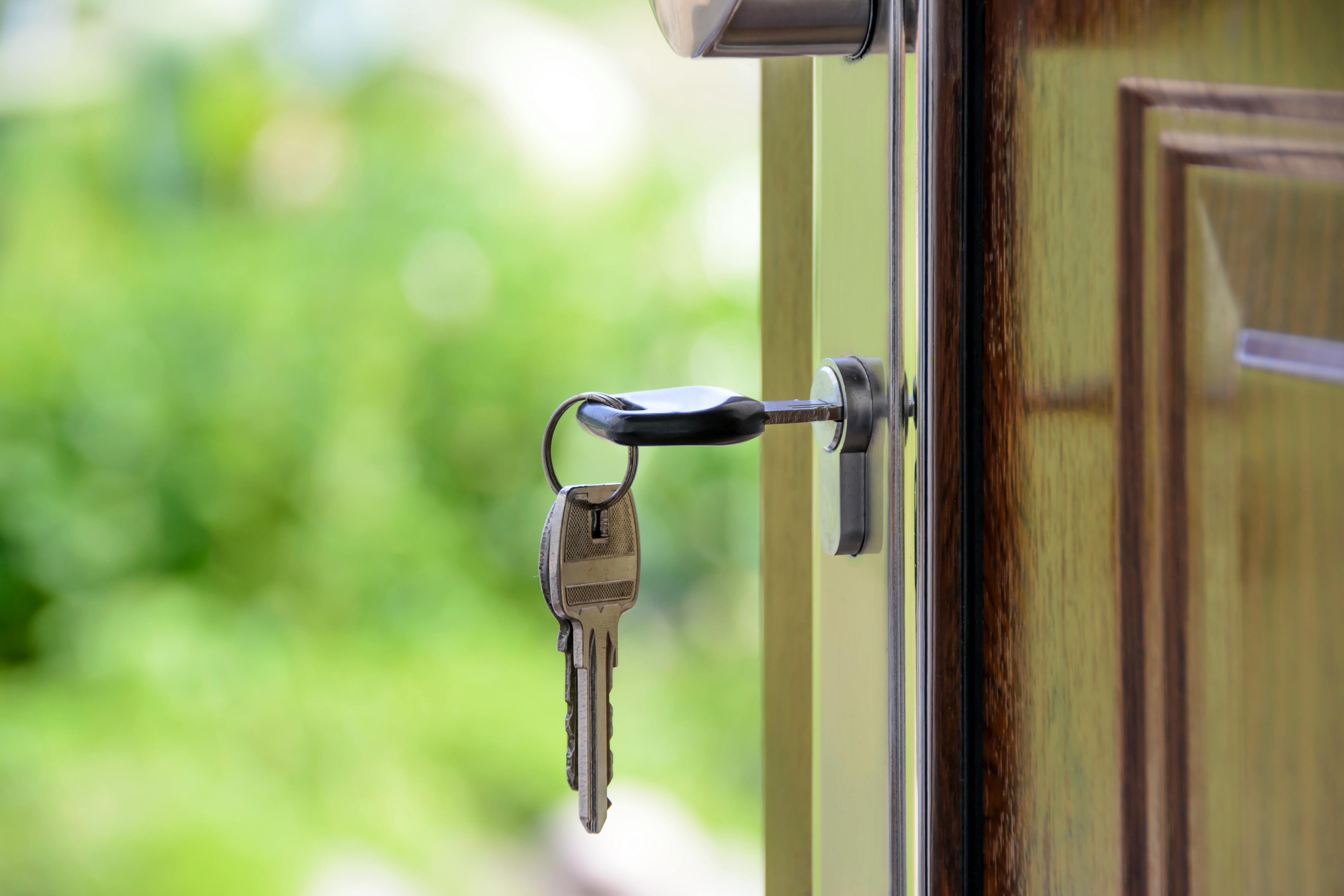What Can Invalidate House Insurance? 13 Key Factors
Homeowner insurance is a necessity if you own a home, but you’ll want to avoid some mistakes that can invalidate your house coverage
Updated:
When you purchase through links on our site, we may earn an affiliate commission. Here's how it works.

Home is where the heart is, but it’s also where we keep our treasured possessions. It’s why we avoid potential heartbreak by sourcing the best home insurance to protect our house and belongings. A robust home insurance policy will cover unforeseen setbacks, from burglary and break-in damage to fires and floods.
But a recent survey by insurer Aviva found that 63% of UK homeowners had done something that could invalidate their home insurance coverage. In this article, we outline 13 ways you could risk invalidating your house insurance.
Key takeaways
- Many homeowners aren’t aware that they might be invalidating their home insurance.
- Common actions such as installing a catflap or going on holiday are potential risks to a claim.
- Read and understand your home insurance policy to ensure you adhere to its terms and conditions.
- Don’t automatically select the cheapest home insurance policy. Select the policy that covers the full value of your home and possessions.
13 ways you could invalidate your home insurance policy
Here are 13 of the most common actions that risk invalidating your insurance policy. Read on to find out what they are and how to avoid falling foul of your insurers the next time you need to make a claim.
1. Failing to look after your property
Some wear and tear on your home is normal, but failing to address issues such as decay or dampness could soon make a small problem a big one. Your insurers will notice when assessing a claim.
Not only is it more pleasant and healthier to live in a well-maintained home, but your insurers will expect it. Standard home insurance policies require the homeowner to keep the property in good condition.
2. Renovating your home
Although this seems to contradict point number one on our list, upgrading your home could concern your insurers. Although they don’t expect you to keep them informed every time you want to paint a wall or fit a new carpet, you should declare more extensive renovations. They’ll want to have this on the record in case of potential claims related to building work on a new bathroom, kitchen, or extension.
Inform them of any key changes to your windows or doors, too. Something as simple as installing a cat flap could affect your premiums if the insurer deems it a security risk.
3. Leaving your home unoccupied
As much as we love our homes, getting away is good. While you’ll likely have no issues with a couple of weeks in the sun, you risk invalidating your insurance if you travel longer. This is because things like water leaks can cause severe damage to your home if they aren’t attended to. The risk of burglary also increases when there’s nobody home.
Insurance policies state the maximum time you can be away, so check yours and speak to your insurer before taking a long holiday or check out our list of the best unoccupied home insurance providers.
4. Incorrectly filling out your application
When buying home insurance, you must disclose accurate details about your house and circumstances. That includes your property’s age, construction materials, security measures, high-risk items, and previous claims. Failing to provide this information could lead to invalidation during a claim.
5. Failing to deal with pests
Ignoring a pest infestation is a bad idea—full stop. But insurers especially don’t take infestations lightly, especially if something like a nibbled electrical wire is the source of the fire at the centre of your insurance claim. If you suspect a termite or rodent problem, find an expert to deal with it as soon as possible.
6. Subletting your home
Subletting isn’t usually considered standard in a house insurance policy. You should declare all tenants in your original application. Insurers will view new arrivals as undeclared risks to your home and possessions, and any claims could be penalised.
If you do plan to sublet, even for a short time, contact your insurer to inform them of this update to your living arrangements.
7. Failures or changes in security measures
Insurers are understandably fussy about the security of your home. When you apply for insurance, you’ll usually state what security measures you have on your property. This includes any burglar alarms and the types of locks on doors and windows. If you change anything about your home’s security, you must notify your insurer, who may wish to alter your premiums.
Additionally, remember to lock windows and doors when you leave the house. You should also beware of sharing live holiday photos on social media. If this tips off burglars that your property is empty, insurers may view this as a careless disregard for security and reject your claim.
8. Failing to pay premiums on time
A failure or delay in paying your annual or monthly premium is a serious condition that risks invalidating your coverage. The easiest way to pay on time is to set up a direct debit with your bank.
9. Breaking policy terms
Familiarise yourself with your policy’s terms and conditions to ensure you abide by them. For example, your policy might require storing certain valuables in a safe or notifying the insurer of new purchases.
10. Lack of evidence of damage
It’s understandably upsetting to find your home damaged by flood or burglary. But while it might be the last thing you wish to do, you should photograph all damage to anything you want to make a claim on.
And, as tempting as it might be, don’t throw out any damaged goods before seeking permission from your insurer first. They’ll want to see evidence before they can process a claim.
11. Slow to report a break-in
If you’re a break-in victim, don’t delay reporting it to the police. Some insurance policies will require that you report the incident within a specific timeframe (e.g., 24 hours). Claims may be rejected for any incidents reported after this window. Insurers will usually request a police crime number before assessing your claim.
12. Over- or under-valuing your contents
Home insurance applications can take a long time, but resist the temptation to speed up the process. Not only do you risk filling out your application incorrectly (see point 4), but you might also fail to accurately value your contents or the cost of a rebuild. Underestimations could result in an insurer paying only a portion of your claim, while overestimating your coverage could lead to disputes during claims.
13. Deliberate damage
It should be unsurprising that insurers won’t pay out in the event of intentional damage to property or belongings. Company investigators will scrutinise any suspicious claims for potential fraud, so contact your insurers with genuine claims only.
Any damage caused by illegal activities will also invalidate a claim.
Recap: How to prevent your home insurance policy from becoming invalid
To summarise, here’s what to do to prevent invalidating your home insurance:
- Read and understand your policy’s terms and conditions and follow your insurer’s guidelines.
- Notify your insurer of significant changes to your property or lifestyle.
- Be honest and accurate when providing information about your house and its contents.
- Maintain your home to a high standard, and don’t delay addressing pest problems or decay.
FAQs
What happens if I don’t report home renovations to my insurer?
Your policy may not cover new additions or changes to your home. This leaves you at risk of denied claims for damages relating to unreported renovations.
Is it illegal to not have home insurance?
It’s not illegal, but many mortgage lenders require you to have house insurance as a condition of their loan. If you rephrase the question to “Do I need home insurance?”, then the answer is a resounding yes!
Do I need to inform my insurer if I get a dog?
You should inform your insurer of any significant changes to your home or lifestyle. This includes the addition of a dog in the home. Some insurers exclude specific breeds or increase premiums based on potential risks associated with your new pet.
What happens if I store valuables without notifying my insurer?
Unreported valuables exceeding your policy’s limits might not be fully covered. This could leave you under-compensated in case of theft or damage. Always inform your insurer of any high-value items you own, such as digital devices, watches, or jewellery.
